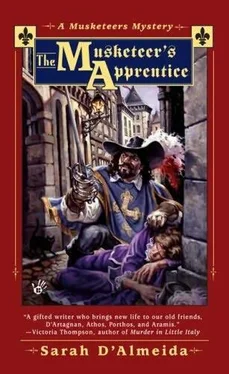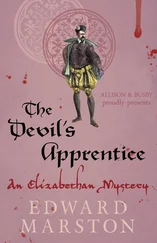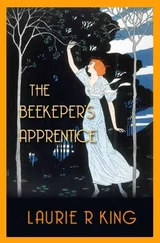Sarah D'Almeida - The Musketeer's Apprentice
Здесь есть возможность читать онлайн «Sarah D'Almeida - The Musketeer's Apprentice» весь текст электронной книги совершенно бесплатно (целиком полную версию без сокращений). В некоторых случаях можно слушать аудио, скачать через торрент в формате fb2 и присутствует краткое содержание. Жанр: Триллер, на английском языке. Описание произведения, (предисловие) а так же отзывы посетителей доступны на портале библиотеки ЛибКат.
- Название:The Musketeer's Apprentice
- Автор:
- Жанр:
- Год:неизвестен
- ISBN:нет данных
- Рейтинг книги:4 / 5. Голосов: 1
-
Избранное:Добавить в избранное
- Отзывы:
-
Ваша оценка:
- 80
- 1
- 2
- 3
- 4
- 5
The Musketeer's Apprentice: краткое содержание, описание и аннотация
Предлагаем к чтению аннотацию, описание, краткое содержание или предисловие (зависит от того, что написал сам автор книги «The Musketeer's Apprentice»). Если вы не нашли необходимую информацию о книге — напишите в комментариях, мы постараемся отыскать её.
In a search for his apprentice's killer, Musketeer Porthos rallies his friends to discover who was responsible, pursuing the truth even as he puts his own life in danger.
The Musketeer's Apprentice — читать онлайн бесплатно полную книгу (весь текст) целиком
Ниже представлен текст книги, разбитый по страницам. Система сохранения места последней прочитанной страницы, позволяет с удобством читать онлайн бесплатно книгу «The Musketeer's Apprentice», без необходимости каждый раз заново искать на чём Вы остановились. Поставьте закладку, и сможете в любой момент перейти на страницу, на которой закончили чтение.
Интервал:
Закладка:
“And he never asked for payment for his work, though the grooms did take him out to… other taverns, when they went. I gather they didn’t drink at home. And they would buy him food and drink. And they gave him things, you know… a used pair of breeches, a mended doublet.”
Athos nodded thinking that such clothes as the boy had died in would not have been come by through gifts from grooms or other people of like quality. He didn’t say anything, but Porthos’s mind must have been running on the same path, because he said, “Of course, they said he must have found someone else to give him clothes, recently, because he showed up in fine violet velvet, the likes of which they’d never seen. Or rather, he wore his normal clothes but he would change into fine violet velvet before leaving. I think he was coming to me for lessons then.”
Athos nodded. He thought so too.
“And they said,” Porthos said. “That he’d come by money too. You know, throwing money around and demanding to pay his share of the drinks and the meals.”
Athos didn’t say anything, as there was nothing he could say to that. Where money was coming from in this matter was something that he would very much like to know. It seemed to him, that alone might solve the whole thing, and for a moment was tempted to tell Porthos to ask his Athenais whether she could trace it.
But Porthos was going on. “And then,” he said. “About a month ago Guillaume was gone for a week. He told them he was going to a village, where his mother had come from. ” A struggling breath, as though Porthos’s head where breaking above water after a long dive. “And the village was St. Guillaume du Vallon.”
Porthos looked at Athos as if he had made some dramatic revelation, but Athos had absolutely no idea what it could be. So the boy had gone to the village his mother had come from. What did that mean? “Were you teaching him fencing then?”
“Had been,” Porthos said. “For a few weeks. And he did tell me he was going to be absent for a week, but I had no idea where he went. I thought…” He shrugged. “If I had known. If only I had known.”
“But why Porthos?” Athos asked. “What would it have signified? So the boy was named after his mother’s village. What can it mean to you?”
“What can it mean to me, Athos? How can you be so calm? What would it mean to you to find you had a son, already grown to half man, and you not knowing him, not having any idea you had him?”
Athos blinked. “His name was Guillaume, and his mother’s village was St. Guillaume of something or other. How does this tell you that his mother…” And then Athos remembered. It had been stupid of him not to think of it earlier, only of course, when he’d met Porthos he already called himself Porthos. And yet he’d seen Porthos’s name but recently, in the genealogy in the boy’s pouch. “Du Vallon, ” he said. “By God, Porthos, du Vallon.”
Porthos sniffled, and Athos couldn’t tell if he was doing it to control tears or in annoyance at Athos’s slowness of mind. “I told you she was my Amelie. There’s nothing of her in that wench at the tavern, nothing I can tell you, at least, but I think there has to be… a turn of the head, a tilt of the brow. Something about her made me think of Amelie. And it was Amelie, Athos. It was. And Guillaume was my son.”
Biting his lip, confused, Athos thought how this would look now if the crime were found out and not a murderer ready for it. The boy had been Porthos’s bastard. The boy had already demanded money from Monsieur de Comeau on the pretext that Monsieur de Comeau was his father. What would people think but that he’d also demanded the like tribute from Porthos, and that Porthos had killed him instead of paying.
It wasn’t possible. No one should think it. Porthos was more likely to fell someone, anyone, with a blow of his huge fist, a quick strike of his nimble sword. What was more, he could easily have killed the boy-if he’d wanted that-and looking at Porthos who swallowed convulsively in an effort to control his tears, Athos knew he’d never wanted it. But if Porthos had wanted the boy dead, it would have been the work of a few seconds to strike out with his sword during one of their practices and claim it had all been by accident. Who could gainsay it who hadn’t been present? Who was there in the world who could have sworn otherwise?
And if Athos said that, if… If the crime were discovered and Porthos taken for it, and Athos were to say that striking by stealth, with poison, was all out of Porthos’s character, people would only tell him that Porthos was stupid and that he would think that a poisoning would never be found. Of course, Porthos wasn’t stupid, but few beyond his three most intimate friends would know that. Very few.
“Porthos,” he said. “It is a damnable situation.”
“Yes,” Porthos said. “Oh yes. If I’d known he was my son, Athos… If I’d known… I’d have…”
“Yes?” Athos asked.
“I’d have recognized him,” Porthos said. “I’d have… Why, in a few years we could have found him a guard post with some nobleman. We could…” He swallowed and was silent.
And in his mind’s eyes, Athos could see Porthos doing just the things he said he’d do. Porthos was no fool, but neither did he, unlike Aramis or Athos, care for the opinions of the world. He would have set the boy up in a proper position and introduced him to everyone in the world.
He would have withstood the pricks of mockery and the smiles of the world and the titters behind their hands at proud Porthos’s recognizing the son of a common whore. And he wouldn’t have cared two figs for it all, save that it would have given him the opportunity to fight some more duels with just cause.
And yet, what connections did Porthos have? What relatives that might mind what they would view as a humiliation for their whole line? And did Porthos have any relatives in Paris who might somehow have seen to the heart of the plot.
When Athos had told D’Artagnan that the great noble houses were all related to each other, he’d been speaking nothing but the truth. But the fact is, so was the lower nobility. In fact many people at about the same level married and married again, till their families were an interconnected web of affinity.
Of course Athos wouldn’t know much about families at Porthos’s level of nobility. Too young a line; too newly come to wealth and name. Athos could very well imagine what his father would say of Athos’s even deigning to greet such in the morning, much less be their close friend.
This meant Athos didn’t even know if Porthos might have near cousins in Paris, much less distant ones. And they were so secret about their identities-which Monsieur de Treville knew, and probably other people in Paris, but about which they never talked, not even to each other- that there had been no talk of family. He knew that Aramis and D’Artagnan were only children simply because they’d volunteered the information. But as for the others… For all he knew Porthos was the seventh of ten brothers, all of them living in Paris, and at least half of them resentful of the idea of a bastard nephew, and one born in a barn, yet.
“Porthos,” Athos said, turning his head to ask his friend about all this. But there were glistening trails down Porthos’s face, running from his eyes to his beard.
And then men appeared before them. They were dressed like guards, perhaps. Certainly their bearing was military. But they wore black breeches and doublets, and no insignias.
The one in front was blond and looked like he was doing a pale imitation of de Termopillae, who normally tried to copy Aramis. He stood in the path that Athos walked and he spoke, with a slight foreign accent. “You will give it to us now.”
Читать дальшеИнтервал:
Закладка:
Похожие книги на «The Musketeer's Apprentice»
Представляем Вашему вниманию похожие книги на «The Musketeer's Apprentice» списком для выбора. Мы отобрали схожую по названию и смыслу литературу в надежде предоставить читателям больше вариантов отыскать новые, интересные, ещё непрочитанные произведения.
Обсуждение, отзывы о книге «The Musketeer's Apprentice» и просто собственные мнения читателей. Оставьте ваши комментарии, напишите, что Вы думаете о произведении, его смысле или главных героях. Укажите что конкретно понравилось, а что нет, и почему Вы так считаете.










